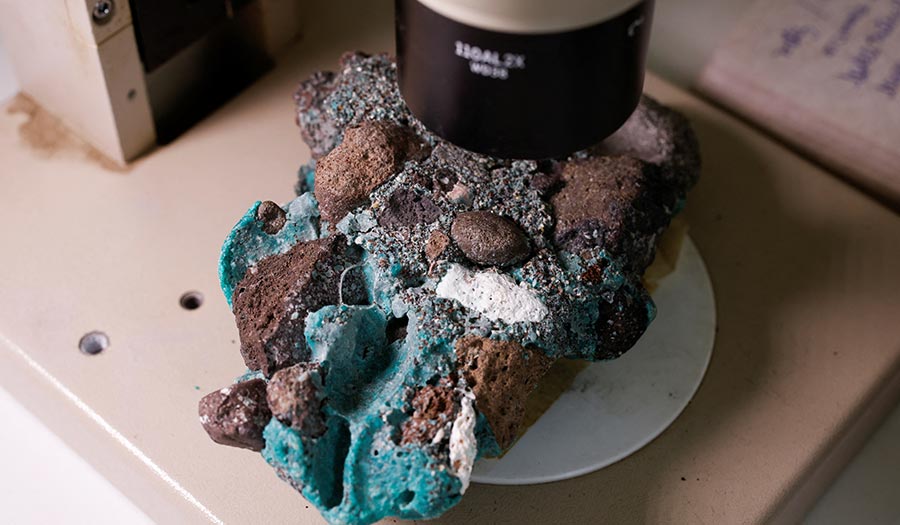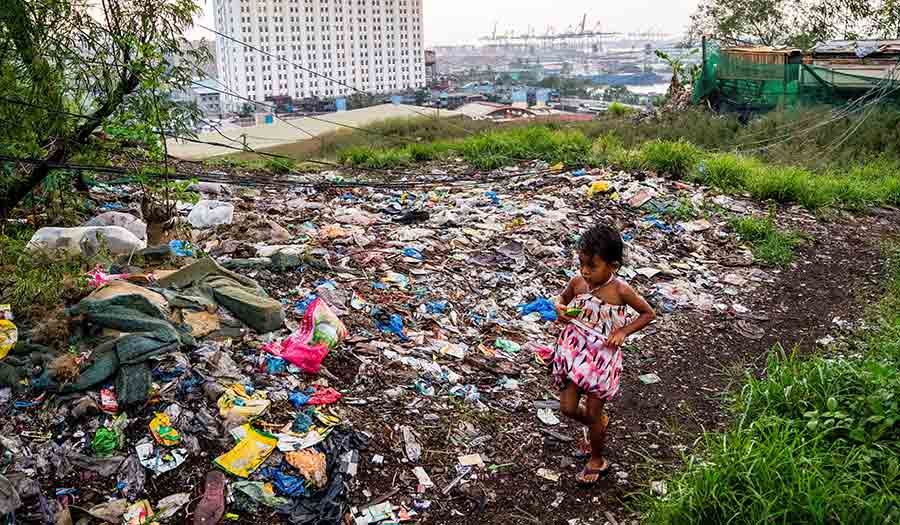 REUTERS/Rodolfo Buhrer
REUTERS/Rodolfo Buhrer
World News Desk
Learn the why behind the headlines.
Subscribe to the Real Truth for FREE news and analysis.
Subscribe NowTRINDADE ISLAND, Brazil (Reuters) – The geology of Brazil’s volcanic Trindade Island has fascinated scientists for years, but the discovery of rocks made from plastic debris in this remote turtle refuge is sparking alarm.
Melted plastic has become intertwined with rocks on the island, located 708 miles from the southeastern state of Espirito Santo, which researchers say is evidence of humans’ growing influence over the earth’s geological cycles.
“This is new and terrifying at the same time, because pollution has reached geology,” said Fernanda Avelar Santos, a geologist at the Federal University of Parana.
Ms. Santos and her team ran chemical tests to find out what kind of plastics are in the rocks, which are called “plastiglomerates” because they are made of a mixture of sedimentary granules and other debris held together by plastic.
“We identified [the pollution] mainly comes from fishing nets, which is very common debris on Trinidade Island’s beaches,” Ms. Santos said. “The [nets] are dragged by the marine currents and accumulate on the beach. When the temperature rises, this plastic melts and becomes embedded with the beach’s natural material.”
Trindade Island is one of the world’s most important conservation spots for green turtles, or Chelonia mydas, with thousands arriving each year to lay their eggs. The only human inhabitants on Trindade are members of the Brazilian navy, which maintains a base on the island and protects the nesting turtles.
“The place where we found these samples [of plastic] is a permanently preserved area in Brazil, near the place green turtles lay their eggs,” Ms. Santos said.
The discovery stirs questions about humans’ legacy on the earth, says Ms. Santos.
“We talk so much about the Anthropocene, and this is it,” Ms. Santos said, referring to a proposed geological epoch defined by humans’ impact on the planet’s geology and ecosystems.
“The pollution, the garbage in the sea and the plastic dumped incorrectly in the oceans is becoming geological material...preserved in the earth’s geological records.”
- World News Desk
- WEATHER & ENVIRONMENT
 Plastic Consumption on Course to Nearly Double by 2050: Research
Plastic Consumption on Course to Nearly Double by 2050: Research
Other Related Items:
More on Related Topics:
- With Sewage Gushing into Sea, U.S. and Mexican Border Towns Plead for Help
- Mass Fish Death in Mexico’s Chihuahua State Blamed on Severe Drought
- It Is So Hot in Mexico, Howler Monkeys Are Falling Dead from the Trees
- Too Much Water, and Not Enough: Brazil’s Flooded South Struggles to Access Basic Goods


